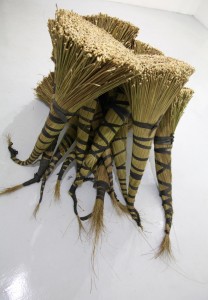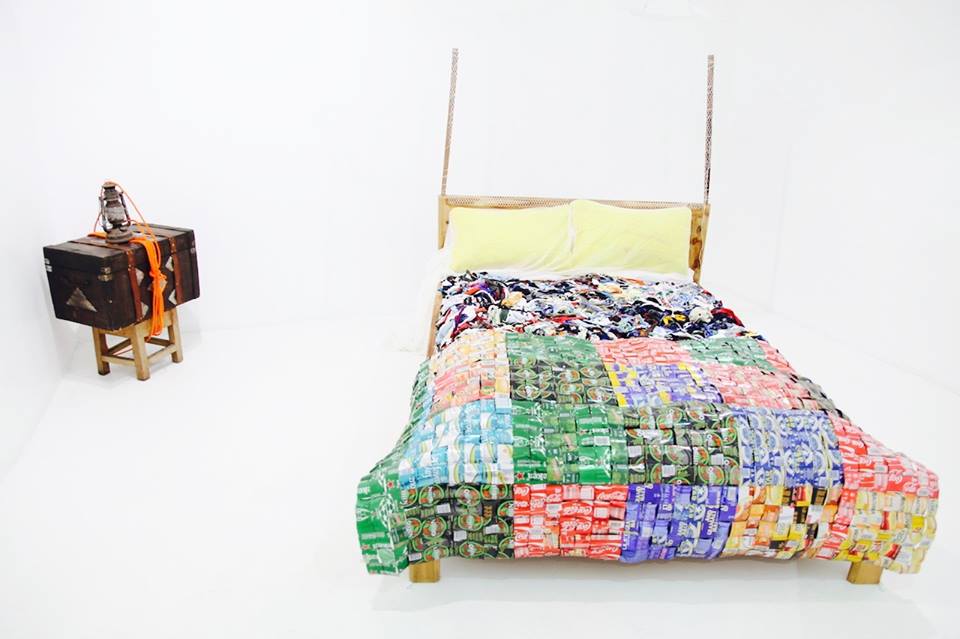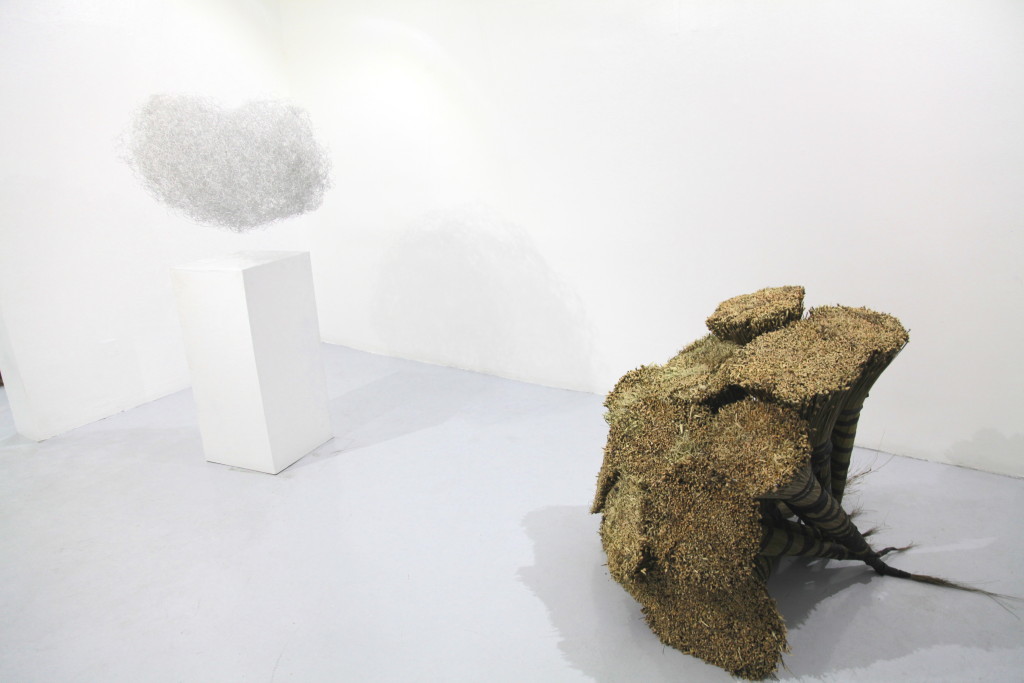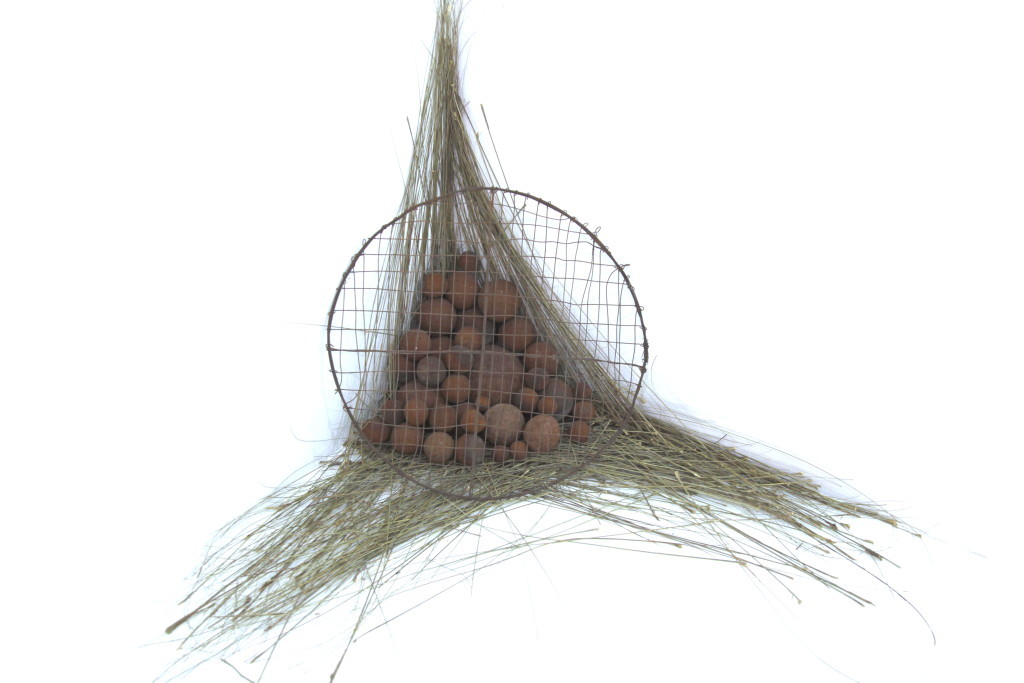
Ebitari Oglafa
From My Grandmother’s Bed series 2016.
About recent exhibition:
Boys’ Quarters Project Space (24 Aggrey Road, Port Harcourt, Rivers State, Nigeria) is proud to present new sculptures by Port Harcourt-based artist Ebitari Oglafa. My Grandmother’s Bed is a meditation on the nature of inspiration. A visual essay exploring the shape of love, the power of feminine influence and the ties that bind. The exhibition arose from a conversation between curator Zina Saro-Wiwa and artist Ebitari Oglafa. According to Saro-Wiwa:
“I have always been struck by Ebitari’s grandmother and her influence in his life. It was present in the first show that he did for Boys’ Quarters and I found myself wanting to know more about her. One evening, for no particular reason, I felt inspired to ask specifically what his grandmother’s bed was like. Ebitari’s eyes lit up as he described this bed and what it meant to him. It struck me then that many beds and bedrooms have a hold on us. It made me feel like it was an important idea to unpack. It was then that I asked him to re-create this bed for the gallery.”
The resulting work is no replica, but rather a representation of this freighted and emotional site filtered through Oglafa’s memory and imagination.
The beds of our parents and forefathers are sacred spaces. Beds are where we sleep, make love, die and give birth. A place not just for the body to rest but for the soul to hover and shapeshift. The bedroom in the African imagination is alluded to by the presence of the sculpture in the corner of the room representing the cassava fufu balls that Oglafa’s grandmother would keep in the bedroom. Cassava balls that could keep for up to two weeks without spoiling. Oglafa’s spheres, painstakingly made from sawdust and glue are nestled within palm fronds (normally used for traditional brooms) and are covered by a circular wire grill. The resulting sculpture resembles a vagina, a womb, a furnace ready to be lit. The grandmother as the hearth of the home and giver of life.
This particular sculpture locates this bedroom as a uniquely African one – and in this case a Niger Deltan space. The bed and the bedroom in African life – even in the home of a wealthy trading woman such as Oglafa’s grandmother – is not the site simply of sensuality, individualist romance and repose as it would be among the middle class and wealthy in the modern day Western world. But rather a utilitarian site to tell stories, pass down legacies, share wealth, store food and garments, transfer power. In homes that are very open and constantly filled with circulating extended family members or house help, the bedroom becomes a source of privacy where important family meetings can take place.
For more information visit: www.boysquartersprojectspace.com



